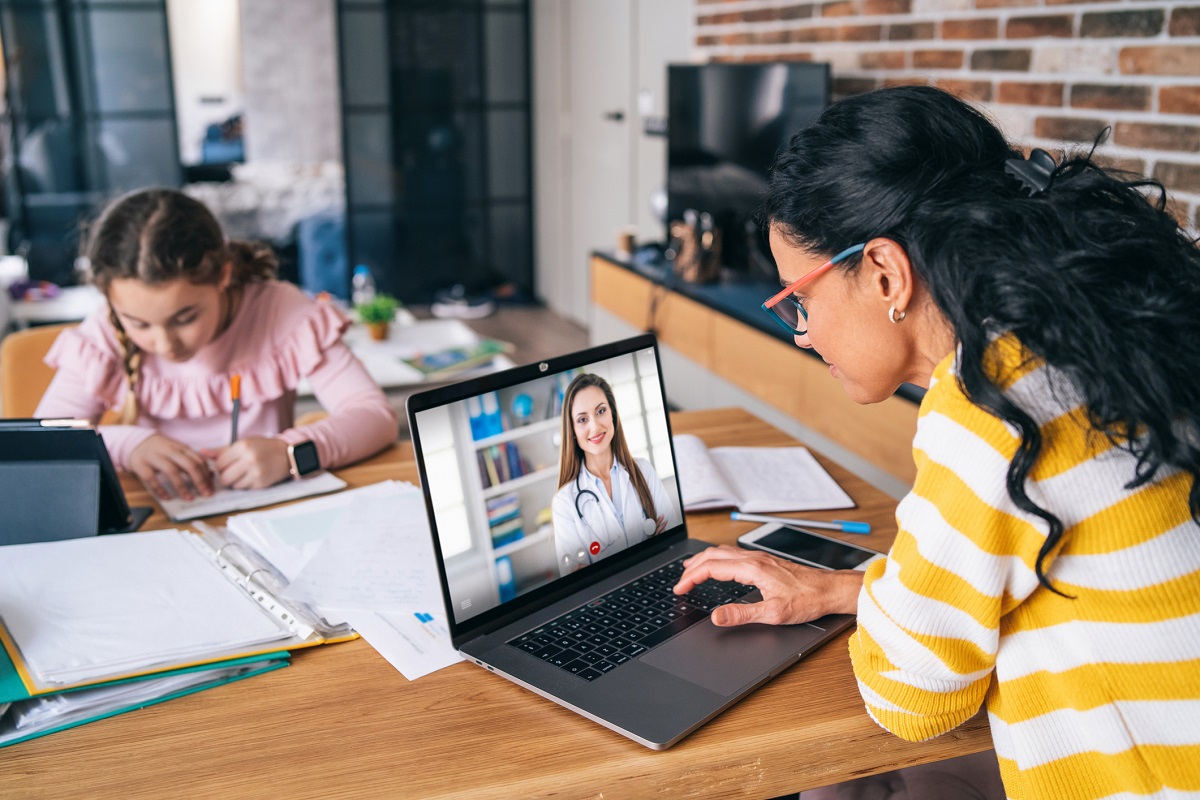The virus has touched every facet of our lives, with a multitude of lessons learned. We’ve become painfully aware that “health is wealth,” and we’ve seen that investments in keeping populations healthy are investments in the economy. The pandemic has also taught us some very important lessons about the need to ensure that everyone has access to the resources they need to be well and to stay safe. Going forward, the social determinants of health and how we treat our most vulnerable populations will dictate how safe we are as a country and as a community.
Those working in and/or encountering the health system have seen first-hand the profound and sudden effects of COVID-19, including the almost overnight transition from in-person care to virtual care delivery. In March and April last year, about six in 10 health care encounters were done virtually — a significant jump from the pre-COVID-19 environment. This spike in virtual care visits is just one example of how the health system reacted swiftly to respond to the pandemic and keep Canadians safe. But while this switch was quick, it required many people working very hard to make it happen.
In fact, one of the key themes that characterizes COVID-19 for me is “unprecedented collaboration.” Let me give you just one example. Very early on in the pandemic, Canada Health Infoway established a COVID-19 Rapid Response Fund. We reached out to our jurisdictional partners — meeting with them individually and collectively, and very frequently — and together, we identified three common priorities:
- Augmentation of virtual teletriage/811 services
- Increasing the capacity to deliver virtual care, including remote patient monitoring
- Ensuring that citizens could access their lab (COVID-19) test results
Within 45 days of the Rapid Response Fund’s creation, we had approved 17 projects across the country. Each of these projects was rolled out within a month of their approval.
Here is a closer look at two of those projects:
New Brunswick successfully set up a secure web portal to enable eligible citizens to obtain faster access to their COVID-19 test results. The portal can be accessed through the MyHealthNB website, and provides test results and information to those who have been tested at an assessment centre. They recently added the ability for parents and guardians to view their children’s test results online as well.
Similarly, Manitoba launched the Shared Health COVID-19 Online Results Display, providing Manitobans with secure access to their COVID-19 results. Because they replicated the New Brunswick model — collaboration in action — Manitoba launched their solution within weeks. This website can be accessed through the Share Health MB website and is available for all citizens who were tested at a community screening location.
These initiatives are just two examples of the exceptional collaboration and quick action that is having a significant impact on Canadians and their care providers. As of December 31, 2020, more than 77,000 health care providers and more than 2.9 million Canadians were using virtual care solutions as a result of these projects — and that number is only set to grow.
COVID-19 has changed the world. As recovery from this pandemic commences, let’s double down on the positive changes we’ve made in its wake. Let’s continue to collaborate at unprecedented levels, share our expertise and work relentlessly towards improving the health system for all Canadians.
Have a comment about this post? We’d love to hear from you.




